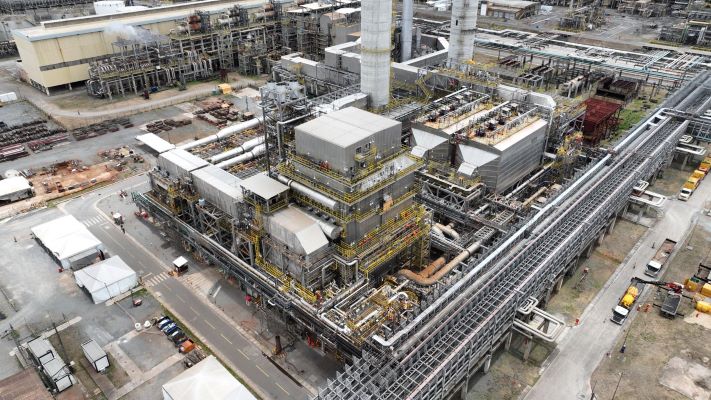The SNOX is the first emissions reduction unit in refining in Brazil and in the Americas

SNOX - Atmospheric emissions reduction unit. Photo by Earlyson Moreira Gonçalves.
Petrobras informs that it has begun operation of the atmospheric emissions reduction unit (SNOX) at the Abreu e Lima refinery (RNEST), located in the city of Ipojuca, in the Brazilian state of Pernambuco.
The emissions reduction will allow the refinery to increase its current processing by 27,000 barrels per day (bpd), in compliance with theemissions limit set by the local environmental authority, from 88,000 bpd to 115,000 bpd.
The SNOX is the first emissions reduction unit in refining, both in Brazil and in the Americas, with the capability to transform sulfur oxide (SOx) and nitrogen oxide (NOx) into sulfuric acid, thus adding a new product to the company's portfolio. The produced acid, among other uses, is an important input for the treatment and generation of drinking water.
In the process of eliminating SOx, the unit also produces energy in the form of steam, which will be used in the refinery facilities, reducing the consumption of gas for energy production and contributing to making RNEST more energy efficient.
Preparations are also underway to begin the Revamp (expansion) works of Train 1, which will increase the refinery’s capacity by 15,000 bpd, improve the flow of light products, and enhance the processing capacity of pre-salt oil. The Revamp works of Train 1 are expected to be completed in the first quarter of 2025. Petrobras will also begin the procurement process to complete the works of Train 2, which will add 130,000 bpd to RNEST’s capacity.
Among all Brazilian refineries, RNEST has the highest conversion rate of crude oil to diesel (70%). With the completion of the RNEST scope (SNOX, Revamp Train 1, and Train 2), the refinery will have the capacity to process 260,000 barrels of oil per day, with an increase in national S-10 diesel production of approximately 13 million liters per day.
Subscribe to our newsletter & stay updated.